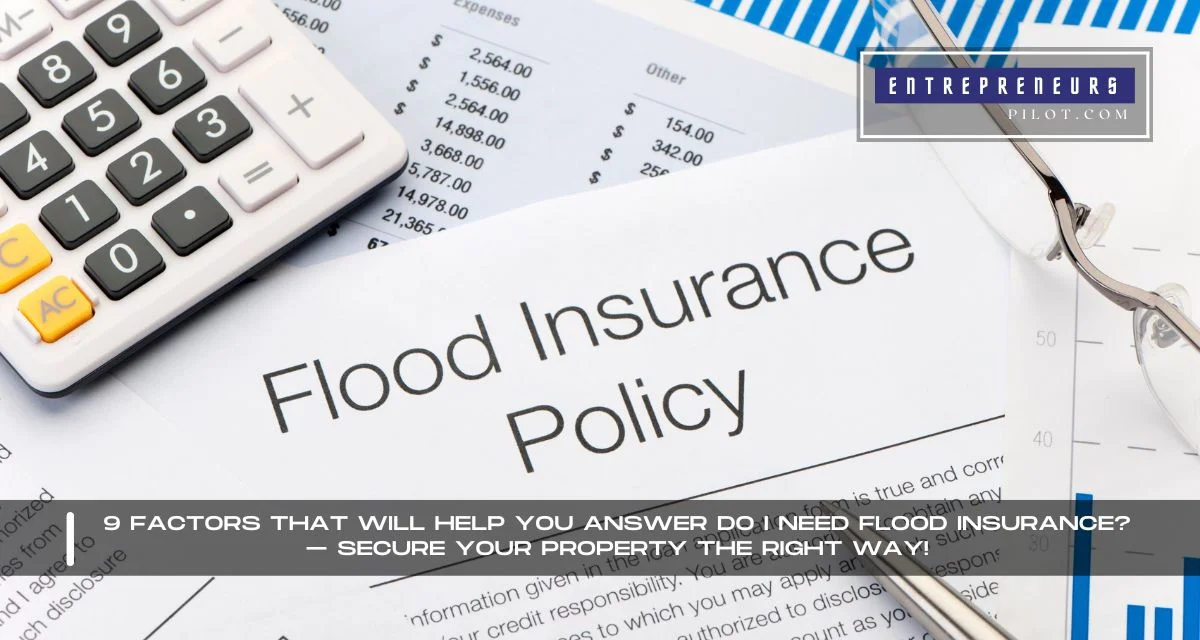Introduction
When it comes to protecting your home, one of the most crucial questions you might face is, Do I Need Flood Insurance? This question is particularly pertinent as climate patterns shift and flooding becomes more common in areas previously unaffected. Understanding whether flood insurance is necessary for your property is not just about adhering to legal requirements; it’s about securing your home and peace of mind.
In this comprehensive article, we will explore nine critical factors that will guide you in answering this vital question. From geographic location to mortgage requirements, these factors are designed to provide a clear perspective on flood insurance, helping you secure your property the right way.
Table of Contents
1. Geographic Location and Flood Risk
Assess the flood risk in your area. Properties located in high-risk flood zones are more likely to require flood insurance, either for peace of mind or due to lender requirements.
2. Mortgage Lender Requirements
Many mortgage lenders mandate flood insurance for homes in flood-prone areas. Check with your lender to understand if this is a requirement for your mortgage.
- For Expert Financial Insights And Guidance, You Can Visit Our Sister Site – ArabsGeek.com Now!
- Curiosity Piqued? Dive Into the Most Captivating Financial Content by Visiting Our Homepage!
- Unlock Exclusive Business Opportunities! 🚀 Connect with Us Now at our Email: [email protected]!
3. History of Flooding
Consider the historical flooding data in your region. Even if your area hasn’t experienced recent floods, past patterns can be a valuable indicator of potential risk.
4. Climate Change Impact
Acknowledge the impacts of climate change. Increasingly erratic weather patterns and rising sea levels can change flood risks, making flood insurance a prudent choice even in areas not previously considered at risk.
5. Cost-Benefit Analysis
Weigh the cost of premiums against potential flood damage costs. In many cases, the cost of repairing flood damage can far exceed annual insurance premiums.
6. Coverage Limits and Exclusions
Understand what’s covered by flood insurance policies. This includes knowing the coverage limits, what is excluded, and whether additional coverage is needed for certain assets.
7. Proximity to Water Bodies
The closer your property is to water bodies like rivers, lakes, or the ocean, the higher the chance of flooding, which can influence your decision on flood insurance.
8. Community Flood Management Measures
Investigate local flood management and mitigation measures. Effective community strategies can reduce risk, but they don’t eliminate the need for individual flood insurance.
9. Personal Financial Security
Consider your financial ability to handle potential losses due to flooding. Flood insurance can be a significant factor in protecting your financial stability in the event of a disaster.
Conclusion
Determining the need for flood insurance requires careful consideration of various factors, including your location, historical and potential future flooding, mortgage requirements, and personal financial situation. By thoroughly evaluating these nine critical aspects, you can make an informed decision on whether flood insurance is right for you. Protecting your home from flooding is not just about compliance; it’s a proactive step in safeguarding your property and ensuring your long-term security.
Frequently Asked Questions
1. Is flood insurance required in all states?
Flood insurance requirements vary depending on your state and specific location within that state, especially concerning designated flood zones.
2. How do I know if my property is in a flood zone?
You can determine if your property is in a flood zone by checking the FEMA Flood Map Service Center or consulting with local government resources.
3. Does homeowners insurance typically cover flood damage?
No, most standard homeowners insurance policies do not cover flood damage; a separate flood insurance policy is usually required.
4. Can renters purchase flood insurance?
Yes, renters can purchase flood insurance to protect their personal belongings in a rented property.
5. How much does flood insurance typically cost?
The cost of flood insurance can vary widely based on your property’s location, flood zone, and the coverage you choose. It’s best to get a quote from an insurance provider for accurate pricing.











